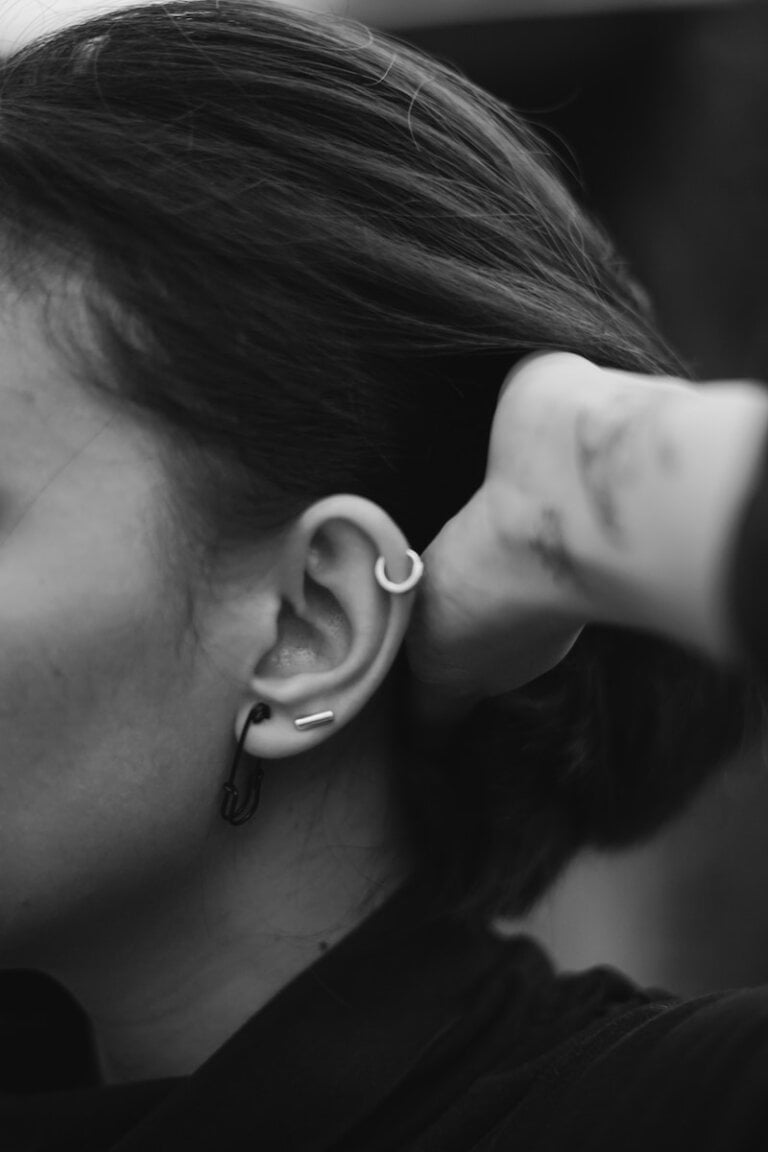Finding Comfort at Home: Easy and Safe Remedies for Ear Infections
Last Updated on 25th April 2024 by Admin
Ear infections can be a painful and uncomfortable experience for both children and adults. They occur when the middle ear becomes infected, causing symptoms such as ear pain, fluid buildup, hearing loss, and even fever. While it is always important to consult a healthcare professional for a proper diagnosis and treatment, there are several easy and safe remedies that can provide relief and comfort at home. In this article, we will explore these remedies and discuss how they can help alleviate the symptoms of ear infections.
1. Warm Compresses
Applying warm compresses to the affected ear can help soothe pain and reduce inflammation. The warmth from the compress increases blood flow to the area, promoting healing and providing relief. To create a warm compress, simply soak a clean washcloth in warm water, wring out the excess moisture, and place it gently against the ear. Be cautious not to make the compress too hot to avoid burning the skin.
In addition to using a warm compress, you can also try using a heating pad or hot water bottle wrapped in a towel. Apply the warm compress or heating pad for about 15-20 minutes at a time, several times a day, to experience maximum benefits. This method can help alleviate pain and discomfort associated with ear infections.
2. Over-the-Counter Pain Relievers
Non-prescription pain relievers, such as acetaminophen or ibuprofen, can be effective in reducing pain and fever associated with ear infections. These medications work by reducing inflammation and blocking pain signals. However, it is important to follow the recommended dosage instructions and consult a healthcare professional if the symptoms persist or worsen.
When using over-the-counter pain relievers, it is crucial to choose the appropriate medication for your age group and follow the recommended dosages. Acetaminophen is generally safe for all ages, while ibuprofen is usually recommended for children aged 6 months and older. Always read the labels and consult a healthcare professional if you have any concerns or questions.
3. Garlic Oil
Garlic has natural antimicrobial and anti-inflammatory properties, making it a popular home remedy for ear infections. Garlic oil can be easily prepared by crushing a few garlic cloves and mixing them with a carrier oil, such as olive oil or coconut oil. Warm the mixture slightly and strain it to remove any solid particles. Using a dropper, apply a few drops of the garlic oil into the affected ear. Leave it in for a few minutes before tilting your head to let the excess oil drain out.
Garlic oil can help relieve pain and fight off the infection-causing bacteria. The antibacterial properties of garlic help kill the bacteria responsible for the infection, while its anti-inflammatory properties reduce swelling and discomfort. It is important to note that garlic oil should not be used if the eardrum is perforated or if there is any discharge from the ear. In such cases, it is best to consult a healthcare professional before using any home remedies.
4. Mullein Oil
Mullein oil is derived from the flowers of the Mullein plant and has been used traditionally to alleviate ear pain and inflammation. It possesses natural analgesic and antimicrobial properties, making it an effective remedy for ear infections. To use mullein oil, warm it slightly and apply a few drops into the affected ear using a dropper. Leave it in for a few minutes before draining out the excess oil.
Mullein oil can help reduce pain, inflammation, and infection in the ear. Its analgesic properties help alleviate pain, while its antimicrobial properties combat the bacteria or viruses causing the infection. This natural remedy is particularly beneficial for ear infections accompanied by excessive earwax buildup or congestion. However, as with any home remedy, it is advisable to consult a healthcare professional before using mullein oil, especially if you have any underlying medical conditions.
5. Keep the Ear Dry
Moisture can worsen the symptoms and prolong the healing process of an ear infection. It is important to keep the affected ear dry to prevent further irritation and promote recovery. After bathing or swimming, use a cotton ball or a soft, clean cloth to gently wipe away any excess moisture. Avoid inserting anything into the ear canal, such as cotton swabs, as it can push the infection deeper or damage the eardrum.
In addition to drying the ear after water exposure, you can also consider using earplugs or a shower cap to protect your ears while bathing. These precautions can help prevent water from entering the ear and reduce the risk of developing or worsening an ear infection. If you frequently suffer from ear infections, it may be beneficial to consult a healthcare professional to discuss preventive measures.
6. Stay Hydrated
Maintaining proper hydration is essential for overall health and can also help prevent and alleviate ear infections. Drinking an adequate amount of water keeps the mucous membranes in the ear and throat moist, reducing the risk of bacterial or viral infections. In addition to water, herbal teas and clear broths can also contribute to hydration.
Make it a habit to consume plenty of fluids throughout the day, especially during and after an ear infection. Avoid excessive caffeine and alcohol consumption, as they can contribute to dehydration. Proper hydration supports the body’s immune system, helping it fight off infections and promoting a faster recovery.
7. Rest and Relaxation
Resting and allowing the body to heal is crucial when dealing with an ear infection. Activities that put pressure on the ears, such as flying or scuba diving, should be avoided as they can exacerbate the symptoms and delay healing. Engaging in high-intensity exercises or strenuous activities should also be avoided during this time.
Getting sufficient rest and practicing relaxation techniques, such as deep breathing or meditation, can help reduce stress and promote a faster recovery. Stress can weaken the immune system, making it more difficult for the body to fight off infections. Therefore, finding ways to relax and unwind can support the healing process and alleviate the discomfort associated with ear infections.
Conclusion
While home remedies can provide temporary relief and comfort, it is important to seek professional medical advice for proper diagnosis and treatment of ear infections. The remedies mentioned in this article, such as warm compresses, over-the-counter pain relievers, garlic oil, mullein oil, keeping the ear dry, staying hydrated, and resting, can all contribute to alleviating the symptoms and supporting the healing process. However, every individual and situation is unique, so it is crucial to consult a healthcare professional to determine the most appropriate course of action for your specific case. Remember, your comfort and well-being are important, and finding the right treatment is key to a speedy recovery.
-
What is the purpose of applying warm compresses to the affected ear?
Applying warm compresses to the affected ear helps soothe pain and reduce inflammation. The warmth increases blood flow to the area, promoting healing and providing relief.
-
What over-the-counter pain relievers can be used for ear infections?
Non-prescription pain relievers such as acetaminophen or ibuprofen can be used to reduce pain and fever associated with ear infections. It is important to follow the recommended dosage instructions and consult a healthcare professional if symptoms persist or worsen.
-
How can garlic oil help with ear infections?
Garlic oil has natural antimicrobial and anti-inflammatory properties. It can help relieve pain and fight off infection-causing bacteria. However, it should not be used if the eardrum is perforated or if there is any discharge from the ear. It is best to consult a healthcare professional before using any home remedies.
-
Why is it important to keep the ear dry during an ear infection?
Moisture can worsen the symptoms and prolong the healing process of an ear infection. It is important to keep the affected ear dry to prevent further irritation and promote recovery. Avoid inserting anything into the ear canal and use a cotton ball or soft, clean cloth to gently wipe away excess moisture after bathing or swimming.







